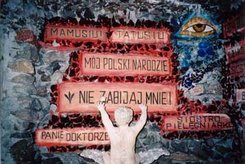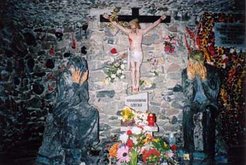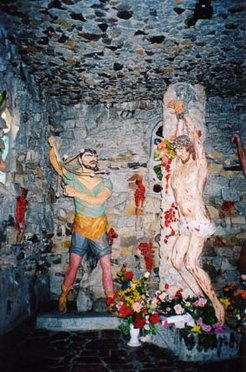Religion and Civil Society
Most anthropological studies of religion have concentrated on people remote from the modern Western World, whether in time, in place, or both. More recent work has, however, tried to overcome this distancing. Contemporary studies may address religious dynamics anywhere in the world; and often pay particular attention to issues of increasing interconnectedness: e.g. the spread of charismatic Christianity, facilitated by modern communication technologies, to almost all parts of the globe.

Our main focus theme for the years 2003-2005 (and possibly beyond) concerns the dynamics of changing beliefs and practices in the postsocialist countries of Eurasia. It is unnecessary to list here all the reasons why this field has been relatively neglected to date. In the socialist period, access to these countries for Western anthropologists was difficult. Studies of contemporary practices (as distinct from "folk beliefs" and mythology) were virtually unthinkable for foreign and native researchers alike, given that socialist states were ideologically committed to combating the forces of traditional religion.

As a consequence, the entire field has been largely left to the ideologically committed on all sides, and we have rather little knowledge of what was really happening to beliefs and practices under socialism. Research conditions have improved in most countries since the collapse of the classical forms of socialism (including Maoism), but the absence of a strong research tradition and the continuing practical obstacles (English and other Western European languages are insufficient to get started in these countries) are among the reasons for the continuing gap in the literature.
The scientific puzzles are legion. Socialism was a massive experiment in directing social change - social engineering on a scale not previously known in human history. But how far could planners and ideologists modify people's most basic convictions about the cosmos, substitute secular alternatives for life-cycle rituals, and provide a new basis of morality for sustaining trust and social cohesion?

The challenge becomes even more exciting when we turn to the second rupture, namely the abandonment of a secular doctrine of "salvation here on this earth" and its ostensible replacement by a return to older forms. How are we to explain a strong reassertion of religion in the public sphere in countries that had repressed religion for three generations, while in some others with a shorter period of socialist rule the effects of secularization seem to be more far-reaching? Apart from such "internal" comparisons, it will sometimes be instructive to look at other modern states, for the relation between church and state varies enormously even within Western Europe. "Laicist" France has struggled hardest to sustain a strict "enlightenment" separation of church and state, while in England the Monarch is head of the dominant church and in Germany the state collects church taxes for the main Christian denominations. Large Muslim minorities regularly allege discrimination in all three states, and controversies concerning the headscarf and swimming lessons do not go away.
Perhaps one should not be surprised that, following the sudden collapse of socialist power, the older forms of organized religion, previously repressed, surged back into prominence. Is this perhaps only a temporary blip, or are there signs that the older religions are entrenching themselves in new ways? Are they establishing new sources of authority, and finding new means to disseminate and transmit their faith to new generations? How are they dealing with competition on the "religious marketplace"? Sometimes due to pressure from powerful states in the West or from human rights NGOs, many postsocialist countries have formally proclaimed religious freedoms that must apply "across the board". But can one really expect of new political elites, or of the mass of ordinary citizens, that they should treat new sectarian groupings promoted by foreigners on a par with a church that has played a conspicuous role in the life of a nation? What factors are at work in promoting conversions, or a re-embracing of the old religion after a long period of atheism?


